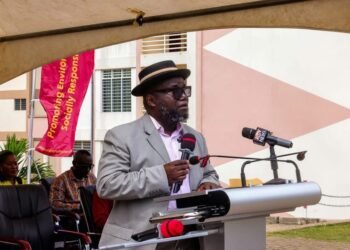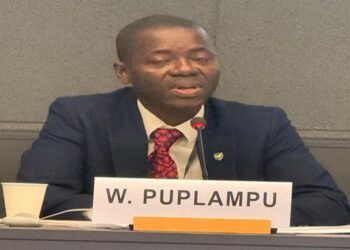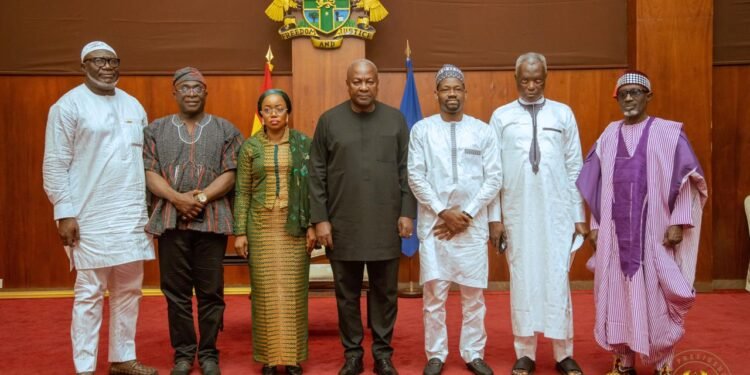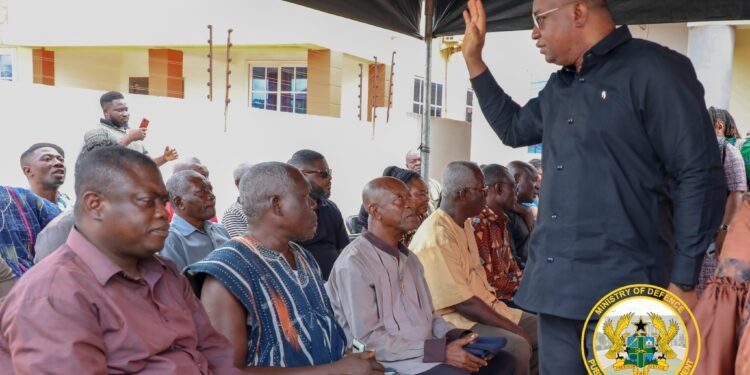Ghana’s Finance Minister, Dr. Cassiel Ato Forson, has hailed sweeping reforms implemented by the newly established Ghana Gold Board (GOLDBOD), citing them as the driving force behind an unprecedented surge in gold exports from the country’s small-scale mining sector.
Presenting the 2025 Mid-Year Budget Review to Parliament, Dr. Forson highlighted the substantial economic gains achieved since the creation of GOLDBOD in April 2025.
“In the first half of 2025 alone, gold exports from the smallscale sector stood at 51.5 tonnes, with an export value of approximately US$5 billion.”
Dr. Cassiel Ato Forson, Finance Minister
In a passionate address to lawmakers, Dr. Forson emphasized the significance of the changes GOLDBOD has brought to the nation’s gold economy.
He noted that within just a few months of its operation, the board had overhauled the licensing regime and introduced a gold aggregation system aimed at formalizing and strengthening the small-scale mining industry.

The result has been a dramatic increase in gold export volumes and values.
“Mr. Speaker, simply put, gold exports, in tonnes, from the small-scale mining sector for the first half of 2025 recorded about 100% increase over what was recorded in the same period last year.
“Similarly, the value of gold exports from small-scale mining increased by about 180%.”
Dr. Cassiel Ato Forson, Finance Minister
In what he described as an unprecedented development, the Finance Minister revealed that, for the first time in Ghana’s history, gold exports from the small-scale mining sector have surpassed those from the large-scale sector.
This shift, he argued, underscores the latent economic potential that had been left untapped due to inadequate oversight and illegal trade in the past.
Crackdown on Illegal Mining

The economic impact of these reforms, he explained, has been immediate and tangible.
The inflow of foreign exchange from the small-scale sector has helped strengthen the country’s reserves, improved the balance of payments, and offered support to the Ghana Cedi at a time when global financial pressures remain volatile.
“This tells a story. A story of a country which has been denied the full benefits of its gold resources.
“A story of a country where illegal gold trade and smuggling have been allowed to fester to the detriment of the wellbeing of the people.”
Dr. Cassiel Ato Forson, Finance Minister
He made it clear that the era of lax enforcement is over. Dr. Forson confirmed that President John Mahama, on July 8, inaugurated a new task force specifically mandated to combat the illegal gold trade and smuggling networks that have long plagued Ghana’s mining landscape.
The task force will work closely with security agencies and regulators to tighten compliance and ensure all gold production is transparently accounted for and channeled through legal pathways.

“I want to use this opportunity to reiterate that the government of President Mahama will deal ruthlessly with anyone found engaging in illegal gold trade and smuggling, as these nation-wrecking activities sabotage the progress of the people.”
Dr. Cassiel Ato Forson, Finance Minister
The success of the GOLDBOD so far has also triggered optimism in the wider economic community.
Policy experts and industry analysts have hailed the reforms as a long-overdue reset that brings the informal mining economy into the formal fold, enhancing not only state revenues but also safety, traceability, and sustainable livelihoods in mining communities.
With the small-scale mining sector now proving to be a strategic lever for national development, attention is shifting to how these gains can be consolidated.
Stakeholders are calling for tighter monitoring, continued stakeholder engagement, and capacity-building to help small-scale miners meet regulatory and environmental standards.
As Ghana’s gold sector turns a new page, the government appears determined not to lose momentum.
The strong performance in the first half of the year has positioned gold as a vital stabilizer for the economy and reaffirmed the potential of targeted reforms to drive national transformation.
READ ALSO: Ghana’s Mobile Money Borrowing Surges: 22% of Adults Now Rely on It – World Bank























